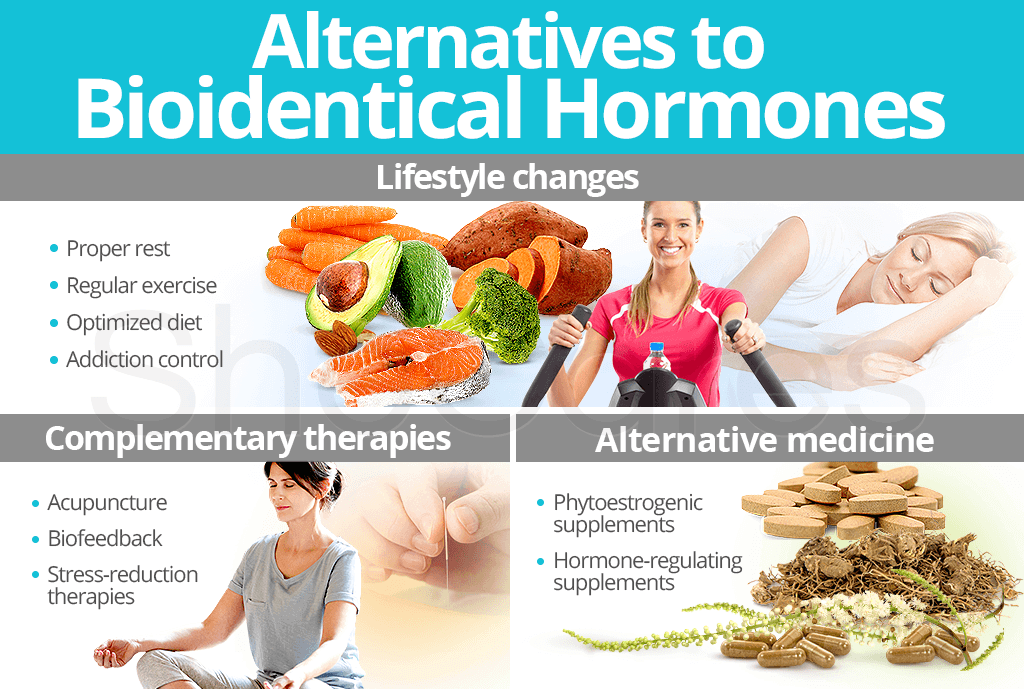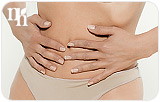In the past, bioidentical hormone replacement therapy (BHRT) was a popular treatment for hormonal imbalance as it was seen as a more natural option to the more traditional hormone replacement therapy (HRT). However, as bioidentical hormones risks and side effects are becoming more apparent throughout the years, women are looking for alternatives to bioidentical hormones for menopause.
Continue reading to learn about three natural alternatives to bioidentical hormones to end symptoms of hormonal imbalance once and for all.
Three Alternatives to Bioidentical Hormones
Many agree that the most effective approach to treat hormonal imbalance is to combine a few changes in lifestyle with alternative treatment options.
Lifestyle changes
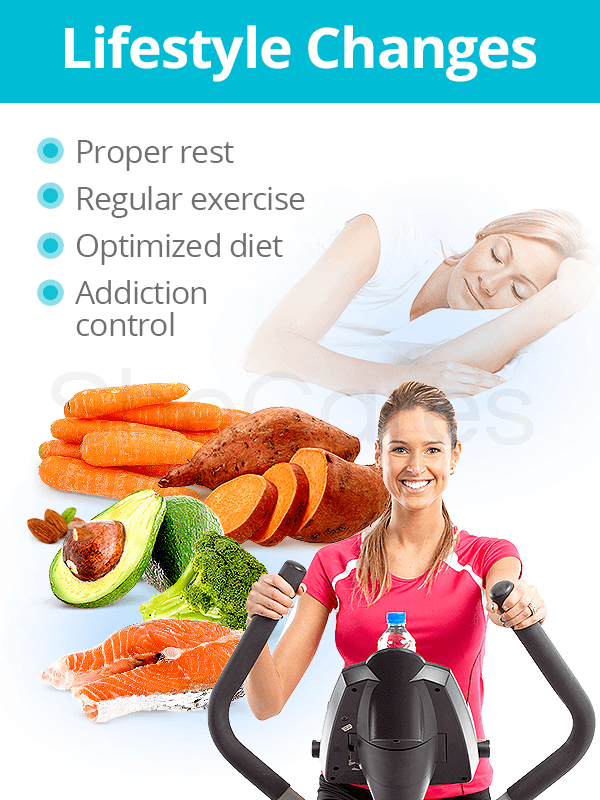
This seemingly simplistic alternative to bioidentical hormones typically requires the most willpower, yet involves the lowest risk.
Small lifestyle changes can be a tremendous help in fighting symptoms caused by hormonal imbalance and in achieving a higher overall level of health without the need for pharmaceuticals. Tips for naturally restoring hormone levels include:
- Rest well, getting at least seven (preferably eight) hours of sleep per night.
- Exercise regularly for 30 minutes a day, five days a week to boost mood, control weight, and promote healthy sleeping patterns. Combine cardio, weight-bearing, and strength training for added benefits.
- Optimize your diet to include a healthy balance of lean protein, complex carbs, and healthy fats that are rich in phytoestrogens, plant-based estrogens
- Practice wholesome habits by limiting alcohol and caffeine consumption as well as staying hydrated with water.
Complementary therapies
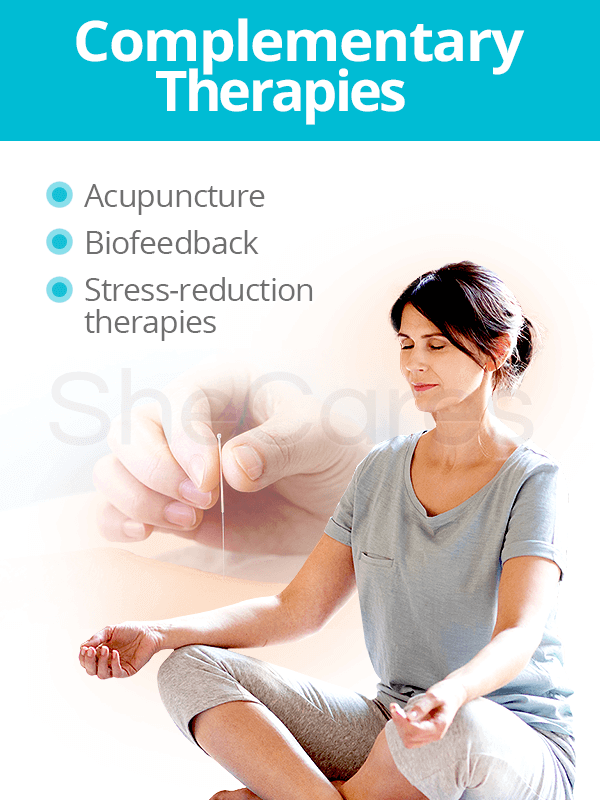
Alongside lifestyle changes, some women may also wish to perform more holistic treatment alternatives to bioidentical hormones, which further promote endocrine system health.
One of the most popular complementary therapies undergone to treat symptoms of hormonal imbalance is the ancient Chinese treatment acupuncture. Acupuncture involves the insertion of needles into the body at specific points to stimulate body systems. By doing so, it resolves pain, aids in gastrointestinal function, improves sleep, and contributes to an overall sense of well-being.
Another complementary therapy that is widely pursued aside from acupuncture is biofeedback. Biofeedback helps relieve menopause symptoms by teaching women how to healthily and effectively control bodily functions, like heart rate, breathing, muscle contraction, temperature, and more.
Furthermore, other women may partake in common stress-reduction therapies of yoga, deep breathing exercises, tai chi, muscle relaxation, and more to further relax. All of these collectively help lower stress levels to further contribute to ultimate endocrine system health.
All women who wish to undergo complementary therapies for symptom relief should seek the help of professionals who are licensed to perform each practice, such as licensed acupuncturists or certified tai chi teachers. With some therapies, such as biofeedback, once their techniques are perfected, they are possible to perform at home.
Alternative medicine
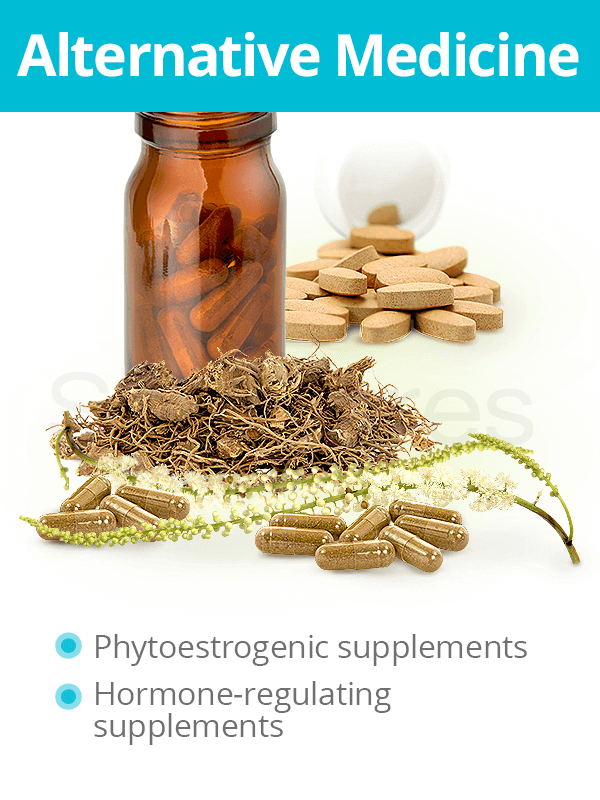
There are two types of herbal remedies used in treating hormone imbalance:
- Phytoestrogenic supplements. These herbs, like black cohosh, contain estrogenic components produced by plants. They treat hormonal imbalance by introducing these plant-based estrogens into the body to compensate for inadequate estrogen levels or take the place of more powerful endogenous estrogen. Unfortunately, as a result of introducing outside hormones into the body, a woman may become less capable of producing her own estrogen, further aggravating the imbalance long-term.
- Hormone-regulating supplements. Hormone-regulating supplements, like Macafem, stimulate a woman's own hormone production by nourishing the pituitary and thyroid glands, causing them to produce natural hormones more efficiently. This results in balanced estrogen, progesterone, and testosterone levels. These supplements are considered the safest and most natural way to treat the symptoms of hormonal imbalance long-term as they do not contain exogenous hormones.
Key Takeaways
A combination of lifestyle changes and complementary therapies alongside the use of alternative medicine is usually the most effective treatment method and a safe alternative to bioidentical hormones. With a little initiative and discipline, there is hope for women to go back to living a symptom-free life without having to go through the hassle of pharmaceutical options.
Sources
- Dr. Susan Love Research Foundation. (n.d.). Alternatives to HRT: Complementary Care. Retrieved June 24, 2019, from https://www.drsusanloveresearch.org/alternatives-hrt-complementary-care
- Harvard Health Publishing. (2017). Dealing with symptoms of menopause. Retrieved June 24, 2019, from https://www.health.harvard.edu/womens-health/dealing-with-the-symptoms-of-menopause
- Healthy Women. (n.d.). Biofeedback. Retrieved June 24, 2019, from https://www.healthywomen.org/condition/biofeedback
- Innes, K.E. et al. (2010). Mind-body Therapies for Menopausal Symptoms: A Systematic Review. Maturitas, 66(2), 135-149. doi: 10.1016/j.maturitas.2010.01.016
- Mayo Clinic. (2019). Biofeedback. Retrieved June 24, 2019, from https://www.mayoclinic.org/tests-procedures/biofeedback/about/pac-20384664
- NHS. (2016). Alternatives: Hormone replacement therapy (HRT). Retrieved June 24, 2019, from https://www.nhs.uk/conditions/hormone-replacement-therapy-hrt/alternatives/
- The North American Menopause Society. (n.d.). Bone Health: Exercise Is a Key Component. Retrieved June 24, 2019, from https://www.menopause.org/for-women/menopauseflashes/bone-health-and-heart-health/bone-health-exercise-is-a-key-component
- UC San Diego School of Medicine. (n.d.). How Acupuncture Can Relieve Pain and Improve Sleep, Digestion and Emotional Well-being. Retrieved June 26, 2019, from https://medschool.ucsd.edu/som/fmph/research/cim/clinicalcare/Pages/About-Acupuncture.aspx
